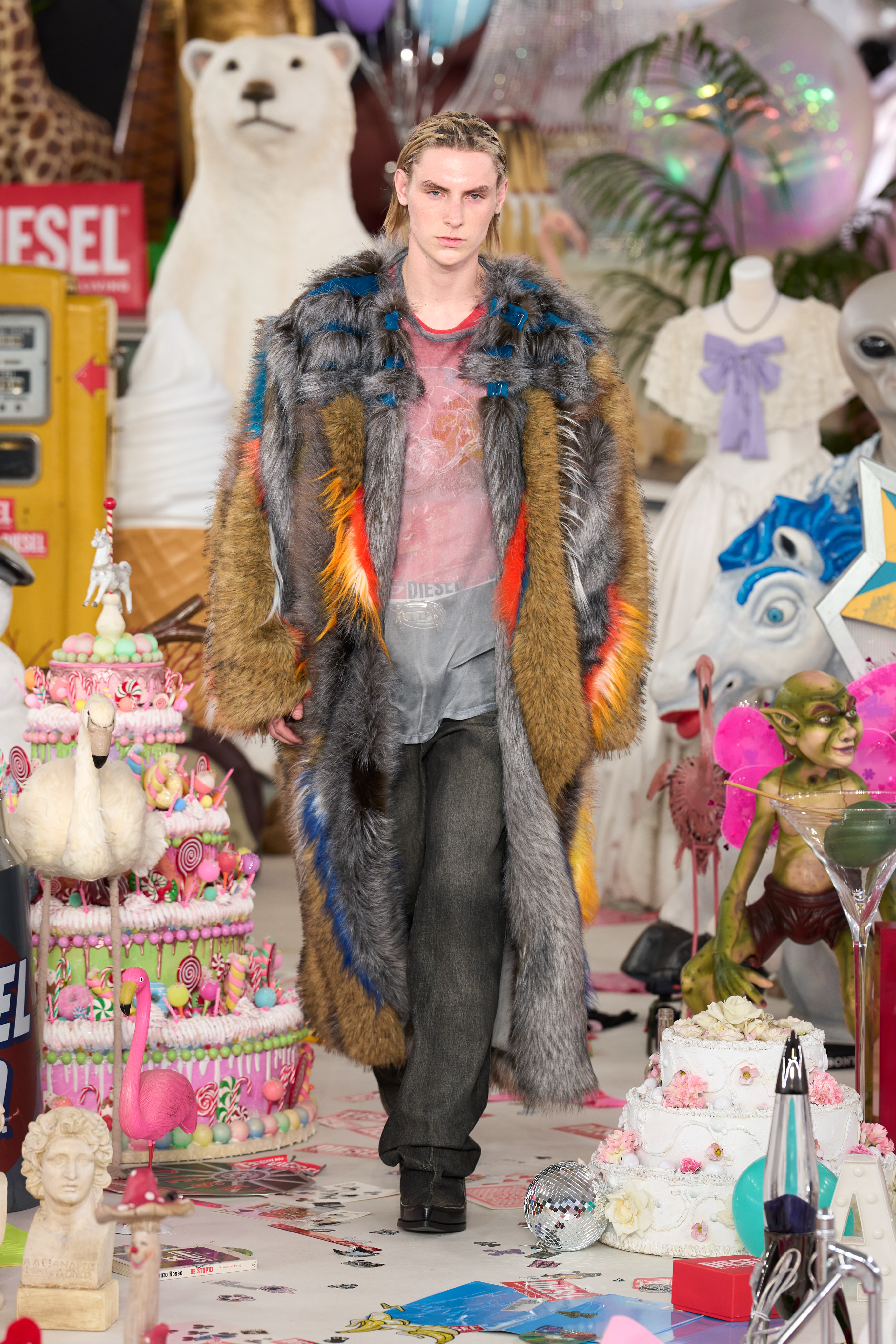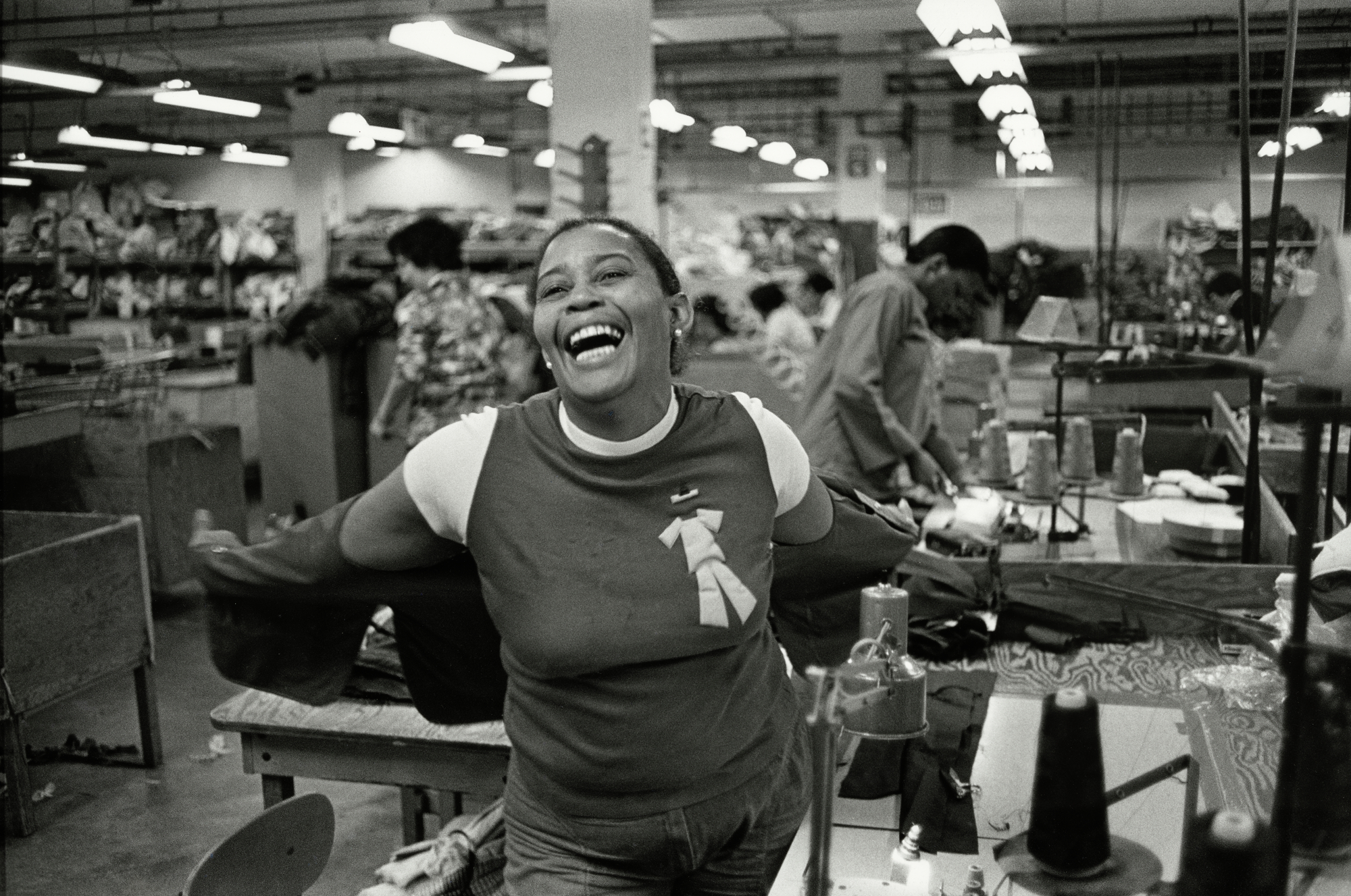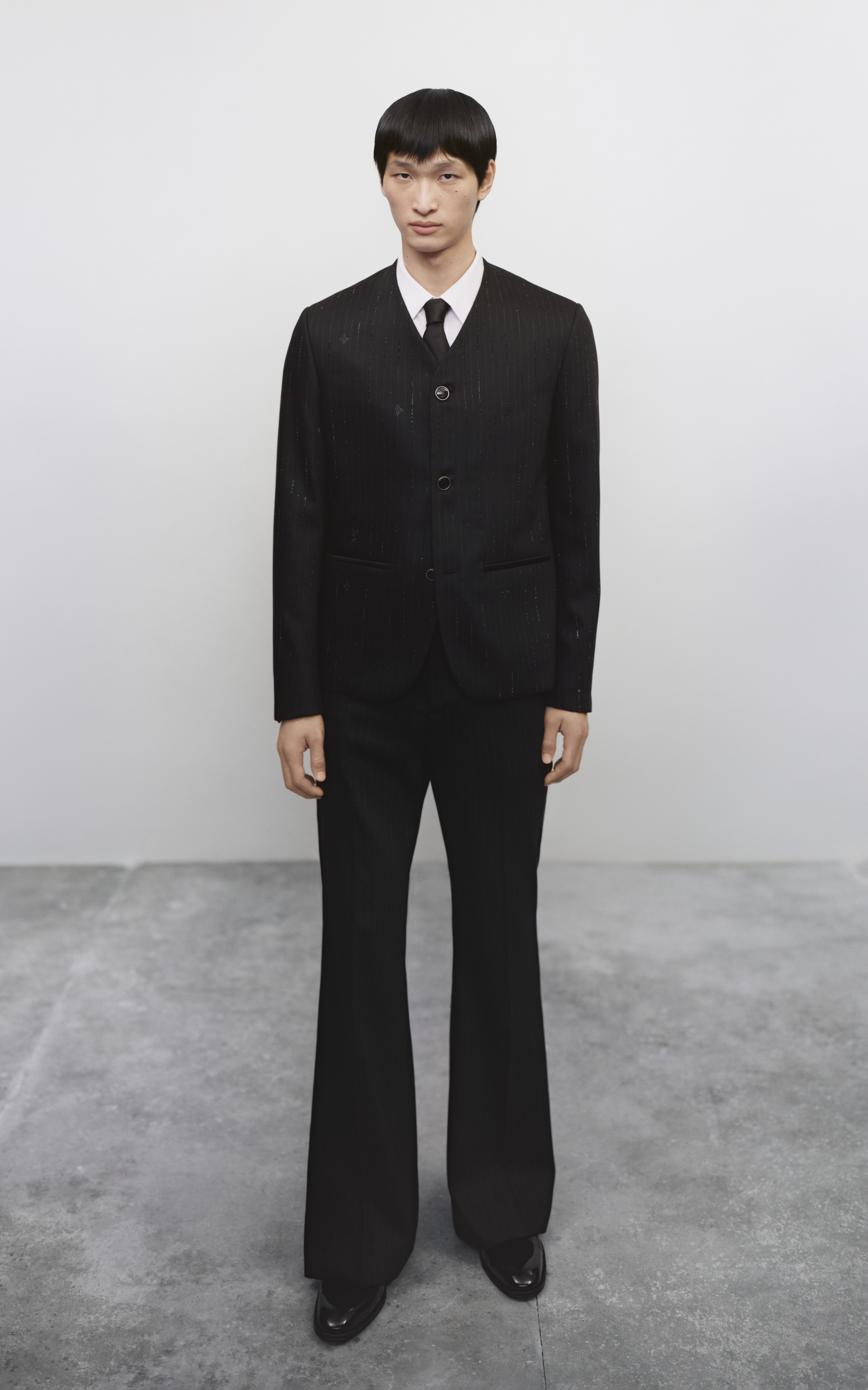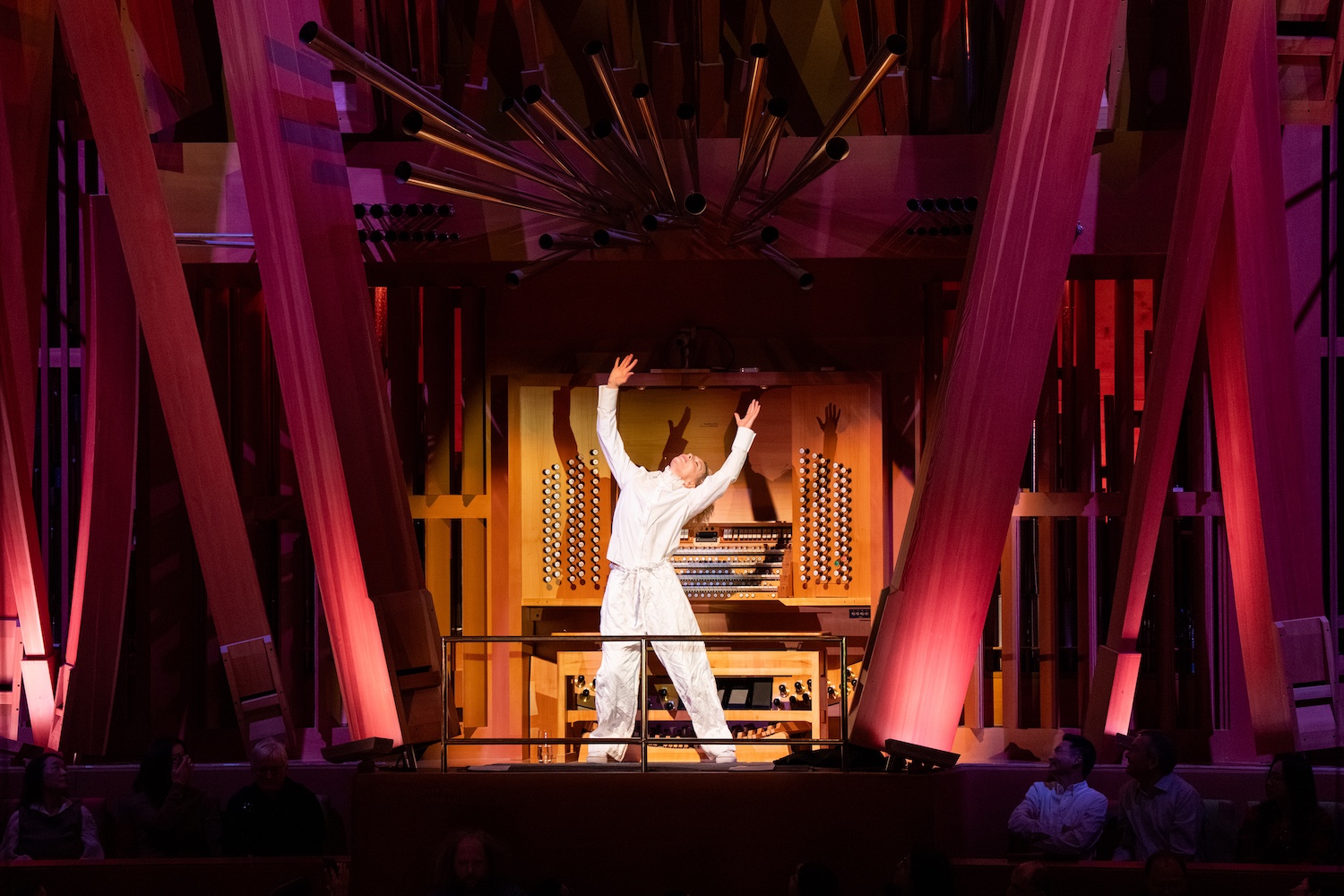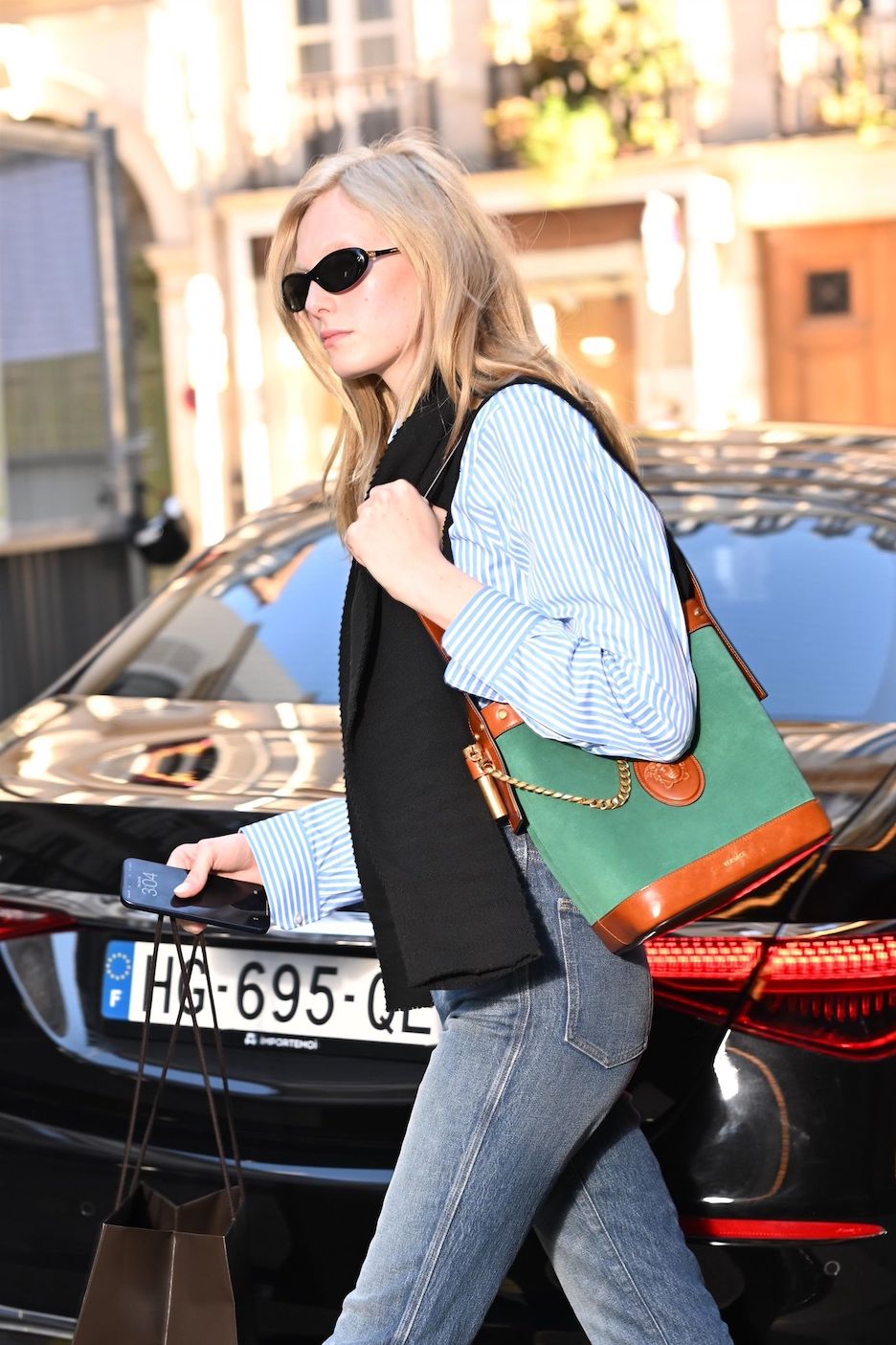

“I’ve been homeless many times. When I was in college I slept under the steps of the art school. I was waiting for my grant money to come in. Some people knew I was homeless, but, because of my energy, I think they kept it a secret. It was like the janitors and facility were my guardian angels. Sometimes I felt like people were watching me. It was like I was their little diamond. I felt like Annie, or like I was a kind of magical animal being protected in this enchanted city of chaos.”
That’s from the mouth and heart of Tyrone Evans Clark; writer, actor, musician, and, above all, empathetic human being. The notion that not every artist is famous feels like a reasonable one. _But is it?_ Do we not live in a media propelled culture where if you’re not famous you’re not deserving of breath?
And how _are_ the almost-famous coping? The ones that create, whether it be films, paintings, literature, music—what is keeping the blood running through their expressionistic veins? Hollywood is now a strange land of nebulosity, like, you’re either on a billboard or you’re dressed up in a Spiderman costume on Hollywood Boulevard taking photos with tourists from Ohio for change. Auditions are done on Zoom, casting directors hardly even know animate vibes anymore, merely digital faces reading half-dead scripts.
But we see them in town, so to speak, the artists. Someone like Tyrone Evans Clark, a perfect representative. Clark, being a filmmaker, musician, and writer, is chasing starlight. He has the budding résumé: numerous bit parts in films like _Velvet Buzzsaw_, _Painter_, _Insecure_, and has directed his first film, a semi-autobiographical tale, _Homeless Sam and Sally_, as well as penned his debut novel entitled, _Grapefruit: The Wrath of Love_.
Clark hails from Chicago, educated at various arts academies, and arrived in Los Angeles in his early twenties. The homelessness he has faced through his upbringing has helped him be more well-equipped for the unpredictability of Hollywood, “I was drifting in and out of being homeless and finding myself, but while I worked I would write the novel, and that took many moons to create. Or at work I would always keep people entertained, but I was too shy to fully commit to being an actor.”
Then Clark was in a relationship that sparked a new artistic flame, “I was dating someone who was an actor and that pushed me into being an actor myself. People would say ‘I don’t know why you’re not an actor. You’re so damn emotional.’”
It is strange and labyrinthine to find the way home as an artist, or to find the voice, and Clark has tried everything. He has recently appeared in many reality-television shows, using the ridiculous moments as fuel for his storytelling, like with his novel _Grapefruit_, an homage to Sci-Fi and fantasy epics. _Grapefruit_ is about a woman seeking the fountain of youth in New Zealand. He tells the story of a woman from his past who shined light on his life in a challenging time, “I’ll never forget it,” Clark reminisces, this possibly the inspiration for the main character in _Grapefruit_, “When I was homeless I met this woman and she said ‘You’re going to be okay. Because at the end of the day it comes down to family.’ We are all connected to a massive sea of consciousness. From 9/11 to Pulse to Covid—we are all feeling it.”
When one thinks of the people fighting and clawing to get to the top of the entertainment heap one thinks of nefariousness, dueling, battle, but maybe that just isn’t reality, maybe that’s just another dramatized scene.
Clark, being African American and a mix of other races, knows full well the current polarizing situation of race relations, but he doesn’t seem to swirl the drain of fear, as he paints brighter pictures, “You have to find a sense of hope in your head. I’ve even had suicidal thoughts. But what I’ve learned is that finding hope in people and love and mother nature and appreciating the good things is the message to cultivate. It was like every time I fell there was somebody embracing me or giving me their last items. I still know some of those people to this day. And some of them are doing very well,” Clark continues on, “What motivates me is that I think of my story. It’s bigger than me. I have a legacy to fulfill. Sometimes I think of myself like a video game, like I have to save the princess, get the magic mushrooms, get to the next level.”
Clark’s main concern as the entertainment industry progresses is whether or not all artists are able to participate. By virtue of saturation of people trying to do the same thing, the dream of everybody being on equal footing just doesn’t seem possible. That being said, if an artist is doing what they’re doing to get famous or rich then the kiss of death might already be upon them.
As for Clark, although the idea of awards and money are appealing, and he has been awarded many grants and awards as an artist, that isn’t why he continues to manifest the creative lifestyle, “Being an artist you have to love what you do. And I don’t believe in limits, I have to be a mixture of everything. There are times when my art might be shit. There will be rejections. Like with our bodies, if you eat shit you feel like shit. There are going to be moments when people might not have a taste for you. But it’s not personal. One of my favorite things is seeing new talent, particularly on screen. I like watching a movie and I don’t even know who the actor or actress is, but they are doing great work. But I don’t look at any of this as a job. I look at it as being fun. And if there was enough action and support to help artists grow then we wouldn’t have the saying ‘Starving Artist’.”
One of Clark’s main focuses outside of being an artist has been being a teacher. He has worked with underprivileged youths and sees that as one of his most valuable jobs in life. It is also providing an abundance of interaction with people, an endless opportunity to grow.
Being a person of color himself, Clark is keenly aware of the challenges America faces and the artistic community has the obligation to answer to, but he considers that truly a positive aspect of the present and future moment, advising, “Really get to know a person. You miss out on opportunities—friendship or business relationships. This person could save your life one day, but now you’ve decided to judge the color of their skin or their creed. I’m not trying to sound like everybody else, everybody bleeds a certain way _blah blah blah_, but it’s true, it’s an energy thing. And in America we are all mixed with something,” Clark says.
When he teaches children he sees first-hand the real nature of humanity, that is, in reality, more nature than human, which is to say, a peace, a trust, a disinterest in material or spiritual segregation. There is something serene and deeply endearing about a person like Clark. This is someone that has been given no advantages, no privilege, a particularly challenging combination as an artist. His outlook is an inspiring one, “You don’t come into the world hating one another. I’m a teacher and I see kids and they don’t care about the color of your skin. We can use art, after all, to bring us closer to humanity. You never know what a person has experienced. Through divine power, energy, force, art, whatever you want to call it, I’m still here today, you’re all still here today. We have the opportunity, and, ultimately, the obligation, to lift each other up.”
 
“I’ve been homeless many times. When I was in college I slept under the steps of the art school. I was waiting for my grant money to come in. Some people knew I was homeless, but, because of my energy, I think they kept it a secret. It was like the janitors and facility were my guardian angels. Sometimes I felt like people were watching me. It was like I was their little diamond. I felt like Annie, or like I was a kind of magical animal being protected in this enchanted city of chaos.”
That’s from the mouth and heart of Tyrone Evans Clark; writer, actor, musician, and, above all, empathetic human being. The notion that not every artist is famous feels like a reasonable one. _But is it?_ Do we not live in a media propelled culture where if you’re not famous you’re not deserving of breath?
And how _are_ the almost-famous coping? The ones that create, whether it be films, paintings, literature, music—what is keeping the blood running through their expressionistic veins? Hollywood is now a strange land of nebulosity, like, you’re either on a billboard or you’re dressed up in a Spiderman costume on Hollywood Boulevard taking photos with tourists from Ohio for change. Auditions are done on Zoom, casting directors hardly even know animate vibes anymore, merely digital faces reading half-dead scripts.
But we see them in town, so to speak, the artists. Someone like Tyrone Evans Clark, a perfect representative. Clark, being a filmmaker, musician, and writer, is chasing starlight. He has the budding résumé: numerous bit parts in films like _Velvet Buzzsaw_, _Painter_, _Insecure_, and has directed his first film, a semi-autobiographical tale, _Homeless Sam and Sally_, as well as penned his debut novel entitled, _Grapefruit: The Wrath of Love_.
Clark hails from Chicago, educated at various arts academies, and arrived in Los Angeles in his early twenties. The homelessness he has faced through his upbringing has helped him be more well-equipped for the unpredictability of Hollywood, “I was drifting in and out of being homeless and finding myself, but while I worked I would write the novel, and that took many moons to create. Or at work I would always keep people entertained, but I was too shy to fully commit to being an actor.”
Then Clark was in a relationship that sparked a new artistic flame, “I was dating someone who was an actor and that pushed me into being an actor myself. People would say ‘I don’t know why you’re not an actor. You’re so damn emotional.’”
It is strange and labyrinthine to find the way home as an artist, or to find the voice, and Clark has tried everything. He has recently appeared in many reality-television shows, using the ridiculous moments as fuel for his storytelling, like with his novel _Grapefruit_, an homage to Sci-Fi and fantasy epics. _Grapefruit_ is about a woman seeking the fountain of youth in New Zealand. He tells the story of a woman from his past who shined light on his life in a challenging time, “I’ll never forget it,” Clark reminisces, this possibly the inspiration for the main character in _Grapefruit_, “When I was homeless I met this woman and she said ‘You’re going to be okay. Because at the end of the day it comes down to family.’ We are all connected to a massive sea of consciousness. From 9/11 to Pulse to Covid—we are all feeling it.”
When one thinks of the people fighting and clawing to get to the top of the entertainment heap one thinks of nefariousness, dueling, battle, but maybe that just isn’t reality, maybe that’s just another dramatized scene.
Clark, being African American and a mix of other races, knows full well the current polarizing situation of race relations, but he doesn’t seem to swirl the drain of fear, as he paints brighter pictures, “You have to find a sense of hope in your head. I’ve even had suicidal thoughts. But what I’ve learned is that finding hope in people and love and mother nature and appreciating the good things is the message to cultivate. It was like every time I fell there was somebody embracing me or giving me their last items. I still know some of those people to this day. And some of them are doing very well,” Clark continues on, “What motivates me is that I think of my story. It’s bigger than me. I have a legacy to fulfill. Sometimes I think of myself like a video game, like I have to save the princess, get the magic mushrooms, get to the next level.”
Clark’s main concern as the entertainment industry progresses is whether or not all artists are able to participate. By virtue of saturation of people trying to do the same thing, the dream of everybody being on equal footing just doesn’t seem possible. That being said, if an artist is doing what they’re doing to get famous or rich then the kiss of death might already be upon them.
As for Clark, although the idea of awards and money are appealing, and he has been awarded many grants and awards as an artist, that isn’t why he continues to manifest the creative lifestyle, “Being an artist you have to love what you do. And I don’t believe in limits, I have to be a mixture of everything. There are times when my art might be shit. There will be rejections. Like with our bodies, if you eat shit you feel like shit. There are going to be moments when people might not have a taste for you. But it’s not personal. One of my favorite things is seeing new talent, particularly on screen. I like watching a movie and I don’t even know who the actor or actress is, but they are doing great work. But I don’t look at any of this as a job. I look at it as being fun. And if there was enough action and support to help artists grow then we wouldn’t have the saying ‘Starving Artist’.”
One of Clark’s main focuses outside of being an artist has been being a teacher. He has worked with underprivileged youths and sees that as one of his most valuable jobs in life. It is also providing an abundance of interaction with people, an endless opportunity to grow.
Being a person of color himself, Clark is keenly aware of the challenges America faces and the artistic community has the obligation to answer to, but he considers that truly a positive aspect of the present and future moment, advising, “Really get to know a person. You miss out on opportunities—friendship or business relationships. This person could save your life one day, but now you’ve decided to judge the color of their skin or their creed. I’m not trying to sound like everybody else, everybody bleeds a certain way _blah blah blah_, but it’s true, it’s an energy thing. And in America we are all mixed with something,” Clark says.
When he teaches children he sees first-hand the real nature of humanity, that is, in reality, more nature than human, which is to say, a peace, a trust, a disinterest in material or spiritual segregation. There is something serene and deeply endearing about a person like Clark. This is someone that has been given no advantages, no privilege, a particularly challenging combination as an artist. His outlook is an inspiring one, “You don’t come into the world hating one another. I’m a teacher and I see kids and they don’t care about the color of your skin. We can use art, after all, to bring us closer to humanity. You never know what a person has experienced. Through divine power, energy, force, art, whatever you want to call it, I’m still here today, you’re all still here today. We have the opportunity, and, ultimately, the obligation, to lift each other up.”

“I’ve been homeless many times. When I was in college I slept under the steps of the art school. I was waiting for my grant money to come in. Some people knew I was homeless, but, because of my energy, I think they kept it a secret. It was like the janitors and facility were my guardian angels. Sometimes I felt like people were watching me. It was like I was their little diamond. I felt like Annie, or like I was a kind of magical animal being protected in this enchanted city of chaos.”
That’s from the mouth and heart of Tyrone Evans Clark; writer, actor, musician, and, above all, empathetic human being. The notion that not every artist is famous feels like a reasonable one. _But is it?_ Do we not live in a media propelled culture where if you’re not famous you’re not deserving of breath?
And how _are_ the almost-famous coping? The ones that create, whether it be films, paintings, literature, music—what is keeping the blood running through their expressionistic veins? Hollywood is now a strange land of nebulosity, like, you’re either on a billboard or you’re dressed up in a Spiderman costume on Hollywood Boulevard taking photos with tourists from Ohio for change. Auditions are done on Zoom, casting directors hardly even know animate vibes anymore, merely digital faces reading half-dead scripts.
But we see them in town, so to speak, the artists. Someone like Tyrone Evans Clark, a perfect representative. Clark, being a filmmaker, musician, and writer, is chasing starlight. He has the budding résumé: numerous bit parts in films like _Velvet Buzzsaw_, _Painter_, _Insecure_, and has directed his first film, a semi-autobiographical tale, _Homeless Sam and Sally_, as well as penned his debut novel entitled, _Grapefruit: The Wrath of Love_.
Clark hails from Chicago, educated at various arts academies, and arrived in Los Angeles in his early twenties. The homelessness he has faced through his upbringing has helped him be more well-equipped for the unpredictability of Hollywood, “I was drifting in and out of being homeless and finding myself, but while I worked I would write the novel, and that took many moons to create. Or at work I would always keep people entertained, but I was too shy to fully commit to being an actor.”
Then Clark was in a relationship that sparked a new artistic flame, “I was dating someone who was an actor and that pushed me into being an actor myself. People would say ‘I don’t know why you’re not an actor. You’re so damn emotional.’”
It is strange and labyrinthine to find the way home as an artist, or to find the voice, and Clark has tried everything. He has recently appeared in many reality-television shows, using the ridiculous moments as fuel for his storytelling, like with his novel _Grapefruit_, an homage to Sci-Fi and fantasy epics. _Grapefruit_ is about a woman seeking the fountain of youth in New Zealand. He tells the story of a woman from his past who shined light on his life in a challenging time, “I’ll never forget it,” Clark reminisces, this possibly the inspiration for the main character in _Grapefruit_, “When I was homeless I met this woman and she said ‘You’re going to be okay. Because at the end of the day it comes down to family.’ We are all connected to a massive sea of consciousness. From 9/11 to Pulse to Covid—we are all feeling it.”
When one thinks of the people fighting and clawing to get to the top of the entertainment heap one thinks of nefariousness, dueling, battle, but maybe that just isn’t reality, maybe that’s just another dramatized scene.
Clark, being African American and a mix of other races, knows full well the current polarizing situation of race relations, but he doesn’t seem to swirl the drain of fear, as he paints brighter pictures, “You have to find a sense of hope in your head. I’ve even had suicidal thoughts. But what I’ve learned is that finding hope in people and love and mother nature and appreciating the good things is the message to cultivate. It was like every time I fell there was somebody embracing me or giving me their last items. I still know some of those people to this day. And some of them are doing very well,” Clark continues on, “What motivates me is that I think of my story. It’s bigger than me. I have a legacy to fulfill. Sometimes I think of myself like a video game, like I have to save the princess, get the magic mushrooms, get to the next level.”
Clark’s main concern as the entertainment industry progresses is whether or not all artists are able to participate. By virtue of saturation of people trying to do the same thing, the dream of everybody being on equal footing just doesn’t seem possible. That being said, if an artist is doing what they’re doing to get famous or rich then the kiss of death might already be upon them.
As for Clark, although the idea of awards and money are appealing, and he has been awarded many grants and awards as an artist, that isn’t why he continues to manifest the creative lifestyle, “Being an artist you have to love what you do. And I don’t believe in limits, I have to be a mixture of everything. There are times when my art might be shit. There will be rejections. Like with our bodies, if you eat shit you feel like shit. There are going to be moments when people might not have a taste for you. But it’s not personal. One of my favorite things is seeing new talent, particularly on screen. I like watching a movie and I don’t even know who the actor or actress is, but they are doing great work. But I don’t look at any of this as a job. I look at it as being fun. And if there was enough action and support to help artists grow then we wouldn’t have the saying ‘Starving Artist’.”
One of Clark’s main focuses outside of being an artist has been being a teacher. He has worked with underprivileged youths and sees that as one of his most valuable jobs in life. It is also providing an abundance of interaction with people, an endless opportunity to grow.
Being a person of color himself, Clark is keenly aware of the challenges America faces and the artistic community has the obligation to answer to, but he considers that truly a positive aspect of the present and future moment, advising, “Really get to know a person. You miss out on opportunities—friendship or business relationships. This person could save your life one day, but now you’ve decided to judge the color of their skin or their creed. I’m not trying to sound like everybody else, everybody bleeds a certain way _blah blah blah_, but it’s true, it’s an energy thing. And in America we are all mixed with something,” Clark says.
When he teaches children he sees first-hand the real nature of humanity, that is, in reality, more nature than human, which is to say, a peace, a trust, a disinterest in material or spiritual segregation. There is something serene and deeply endearing about a person like Clark. This is someone that has been given no advantages, no privilege, a particularly challenging combination as an artist. His outlook is an inspiring one, “You don’t come into the world hating one another. I’m a teacher and I see kids and they don’t care about the color of your skin. We can use art, after all, to bring us closer to humanity. You never know what a person has experienced. Through divine power, energy, force, art, whatever you want to call it, I’m still here today, you’re all still here today. We have the opportunity, and, ultimately, the obligation, to lift each other up.”
